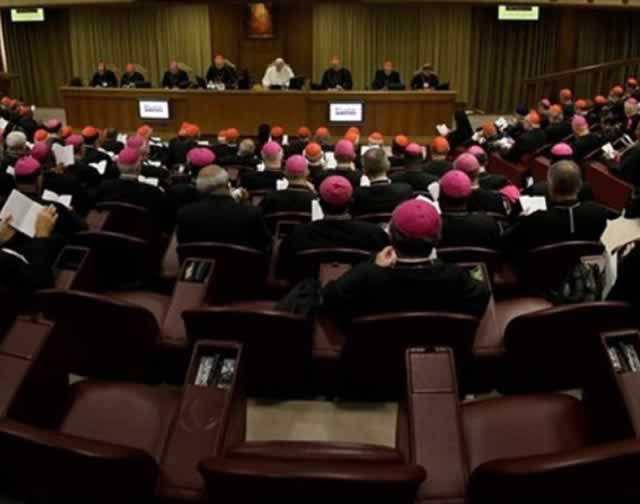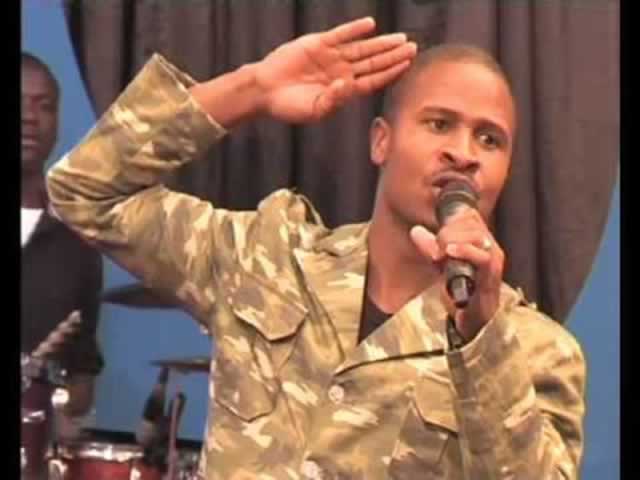Will the Vatican’s stance on gays hold?

Hildegarde The Arena
MANY years ago, one of my brothers intimated that he wanted to be a Catholic priest. So determined was he that he told our grandfather of his intentions. However, our grandfather, who was a no nonsense person, would not have any of that stuff.
He told him that not only did he expect him to get married and have a big family, but that he would have none of the wanting to be a priest business.
Grandfather argued that by becoming a Catholic priest, he would limit the family growth because the celibacy rule would not allow him to marry or have children.
So strong was grandfather’s dissent that the boy’s dream was killed by the statement: “Unoda kuuraya rudzi rwangu” (You want to kill the family’s growth and expansion). Although there were more boys in the family, my brother’s move was seen as going against the grain of man and woman’s responsibility — procreation.
Chances are that my brother was probably not the first person to face such stiff resistance to fulfil his dreams of serving the Lord as a Catholic priest. It is generally believed that the late Archbishop of the Catholic Church in Zimbabwe Patrick Chakaipa’s novel, “Rudo Ibofu” (Love is Blind) is an expose of the trials and tribulations he went through on his journey to becoming a Catholic priest.
These are basic examples of feelings and perceptions that run deep but that are easily overlooked when time and again the homosexuality debate is before us.
Most recently, it was the Catholic Church having that debate at the highest level — a synod or meeting of about 200 bishops from all over the world at the Vatican.
Pope Francis called the meeting to discuss a preliminary document on the family in the 21st century: “The Pastoral Challenges of the Family in the Context of Evangelisation: Instrument Labori”. The final position will be made at another meeting in 2015.
Why should the goings-on in the Catholic Church be a talking point? Simple! The writer was raised in a Catholic family and realised the immense influence the Church has on spiritual, political, social and cultural issues.
The Catholic Church has always been a talking point even among people who do not ascribe to its doctrine. However, in this latest scenario, it has brought to the fore a thorny issue — gay rights, which should not only awaken the so-called human rights activists, but every church that cares about its spiritual well-being, and also people who subscribe to family values.
Despite a raft of issues affecting the modern family, the media, Western media in particular, zeroed in on the church’s discussion on homosexuality where the draft document indicated that “homosexuals have gifts and qualities to offer the Christian community: are we capable of welcoming these people, guaranteeing to them a further space in our communities? Often they wish to encounter a Church that offers them a welcoming home.”
This was not coincidental. It was evident that the agenda setting that started a few years ago with the dangling of the stick and carrot on donor funding for the recognition of gay rights is roping in more players.
Initially, it was Western aid agencies, followed more recently by their governments. Now, it is one of the biggest churches in the world making it a discussion issue. What was more interesting was that this was not a meeting between Pope Francis and Western bishops, but it was Pope Francis meeting with bishops from all continents where Catholicism is practiced, Africa included.
This was a complete departure from the former Catholic position where homosexuality was largely “a taboo topic for the Vatican, ignored altogether or treated as ‘an intrinsic moral evil’.”
Pope Francis had set the tone for things to come in the Catholic Church. In July 2013, he told journalists, “If someone is gay and he searches for the Lord and has good will, who am I to judge?” Pope Francis told reporters, speaking in Italian but using the English word “gay.” He added, “So much is written about the gay lobby. I have yet to find on a Vatican identity card the word ‘gay,’” Pope Francis said, chuckling.
“They say there are some gay people here. I think that when we encounter a gay person, we must make the distinction between the fact of a person being gay and the fact of a lobby, because lobbies are not good.”
According to the New York Times, “In that context, brief remarks by Pope Francis suggesting that he would not judge priests for their sexual orientation, made aboard the papal airplane on the way back from his first foreign trip, to Brazil, resonated through the church. Never veering from church doctrine opposing homosexuality, (Pope) Francis did strike a more compassionate tone than that of his predecessors, some of whom had largely avoided even saying the more colloquial “gay.”
For now we can all celebrate — Catholics and non-Catholics alike, just like President Mugabe congratulated the bishops’ final stance on the issue. But for how long will this hold, considering that the changes are being instigated from the centre of power in the Church?
The general view as elucidated by the media like the timesofmalta.com that “while the original text did not signal any change in the church’s condemnation of homosexual acts or gay marriage, it used less judgmental and more compassionate language than that seen in Vatican statements before the 2013 election of Pope Francis. The Vatican document will now serve for further reflection among Catholics around the world ahead of another, definitive synod next year.”
How then does the Catholic Church hope to come to a common understanding of family values for its more than 1.2 billion followers without seriously affecting the mores and values that family systems are anchored on in different countries and not just the Vatican?
Why would the Catholic Church also want to depart from fundamental issues regarding the family in their “Biblical Teaching on the Family” which states: “The Book of Genesis shows that man and woman are created in the image and likeness of God; in receiving and accepting each other, they recognise that they are made for each other (cf. Genesis 1:24-31; 2:4b-25). Through procreation, man and woman collaborate with God in accepting and transmitting life: ‘By transmitting human life to their descendants, man and woman as spouses and parents co-operate in a unique way in the Creator’s work.’ Their responsibility also involves the stewardship of creation and the propagation of the human family. In biblical tradition, the beauty of human love as mirroring divine love is developed mainly in the Song of Songs and the prophets.”
If the Bible is indeed the blueprint upon which this discussion was based, and upon which future discussions will be anchored, why the need to deviate from that? Obviously, perceptions have been made regarding this. What is the net effect on the church body, considering the Catholic Church’s influence globally?
At the weekend, the writer watched with amazement two gay men (in a relationship) each holding a child. The two children were adoptees by this gay “couple” who were not only being used by the media to create a new notion of the changing nature of the family unit, but was also forcing viewers especially the Catholic laity to accept their gay relationship and also accept that as a union, they have a right to be parents.
Are these the interesting times that the Catholic Church has in store for us? Maybe the Catholic Church in Zimbabwe might as well read Father Oskar Wermter’s book, “Man and Woman He Created Them” published by Mambo Press. It is also crucial that the debate does not remain among the church leadership.
It’s time that people spoke openly about it before 2015 comes with a likely tsunami on family values.










Comments